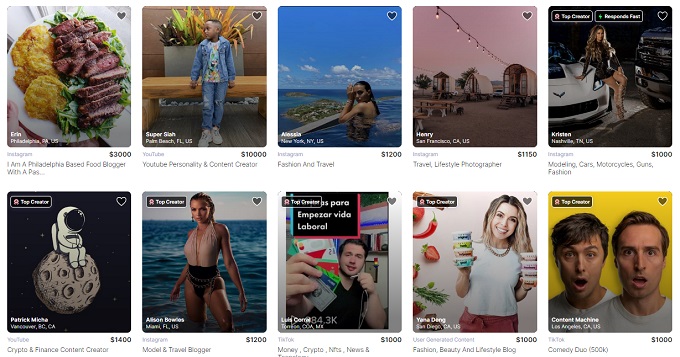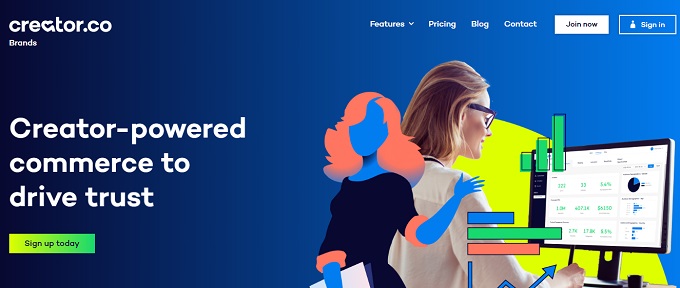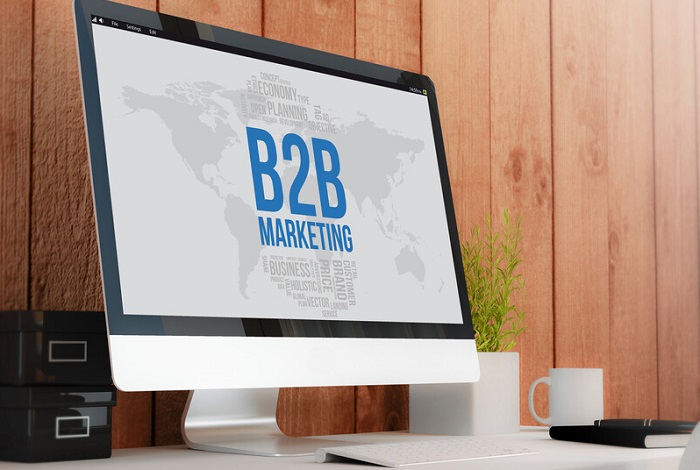Is the Content Author the Best Influencer?
One fact that doesn’t get much ink online is the weight and authority of content authors.
Most authors, copywriters, videographers are little more than ghost writers and are discounted as an asset in marketing.
Yet content without a specific human author with flair, credibility, trust factor and emotional connectivity, your content’s performance falls flat. The first rule of significance is whether you’re actually personally engaged with content and your audience. Anonymity makes people feel uneasy and disinterested.
People like conversations and interactions between similar people, so anonymous material doesn’t achieve the emotional impact or trust that drives decision making. It might not be possible to achieve market leadership until a real person provides this missing gap in most B2B brands.
If you take Elon Musk as an example, he’s achieved iconic status as a legitimate entrepreneur and value generator with his space technology, batteries and solar products, electric vehicles, Starlink internet services, and soon, digital communications services via vehicles. Authentic, bold, confident, upbeat, and true to a stellar brand, Elon runs over mediocrity and delivers influence.
Right now, the Democrat media are trying to chew him to pieces, even drumming up charges against him for laying staff off at Twitter. By owning Twitter, he’s creating an impressive channel for promotion of free speech which will win him many followers.
Yet with big influence comes political/media tyranny. Celebrity influence can overshadow the products and brands themselves. For some brands, it’s worth the risk because they lack so badly.
An agency I worked with many years ago hired Howard Stern at the height of his brand to be an influencer. It created enormous reach (radio and SiriusXM) to the appropriate audience. He was controversial but engaging.
Why Influencers?
Companies turn to influencers or entertainers to influence prospects and audiences. Sometimes it’s just desperation for reach and traffic which they haven’t built themselves — meaning a weak commitment to marketing.
What do these popular influencers offer?
- reach to big audiences
- compelling online personality to make your brand more relatable and show social proof
- give your brand impact and significance
- to engage in user’s lives and product usage
- help reach bloggers, journalists and other influencers
- help generate mentions and backlinks to your website for better Google rankings
Despite the popularity of sites such as Collabstr to acquire influencer services (for big fees), it is likely better for your company to create your own influencer. It’s less expensive, creates longer term value, and your own “micro-influencer” can achieve better results with the right strategy.

The issue as you’ll garner from this post is that real influence is a high-level talent and only good influencers have the resources to build out this service offering. Without in-house time, talent, resources, patience and confidence, companies will have to pay dearly to these stranger influencers to do the same thing.
Marketing managers and CEOs may not fully understand this situation and be unwilling to pour funds into their own content marketing and influencing efforts to achieve better lifetime value. That’s a negative.
Influglue.ca has grouped social media influencers this way:
- Nano influencer (within 10k followers)
- Micro influencer (10 to 20k followers)
- Mega influencer (20 to 100k followers)
- Celebrity influencer (more than 100k followers)
Keep in mind that number of followers does not prove their ability to engage and influence those followers.

Influencer Hub Shows Micro-Influencers are a Rising Force
The influencer is estimated to have reached $16 billion in 2022 according to Influencer Marketing Hub who conducted a survey on influencer marketing.
You’d be hard pressed to find any other area growing at this pace. It says something about the digital marketing environment itself in an era of monopolies. Influence is hard to achieve, reach is difficult now, and those who have it in any capacity can name their price. And big corporations have the money to pay for this influence.
According to Influencer Marketing Hub, a majority of consumers prefer to follow influencers who look and act like everyday people, instead of celebrities. And the market share of micro-influencers continues to grow from an 89% share in 2020 to 91% last year. Micro-influencers chosen because of authenticity, relatability, and credibility, which today’s audiences respect.
This leads us to believe that content producers themselves are these micro-influencers and their value is rising.
The number of companies/people offering influencer services has grown too. And because of the number of impressions delivered via social media sites, social influencers are generally the most in demand.

Top Real Estate Influencers (Examples)
There are top real estate influencers by numbers of followers, reach, impact, and sales criteria. Some are helpful, and fun, while some are not so nice. It’s questionable whether these personalities can help real estate agents win their local markets. However, influence has many dimensions.
- Barbara Corcoran
- Josh Altman
- Jason Walter
- Ken McElroy
- Kevin Ward
- Ryan Serhant
- Grant Cardone
Many Realtors do try to become their own social personality or influencer, but fall far short on substance. They get too pushy and flashy on YouTube or Instagram, and create an artificial image that might lose more real estate business than they gain.
Finding an external influencer in your industry isn’t easy because they’re doing their own business. Often they’re not too enthusiastic about committing to your brand’s ascendence. There’s always some conflict of interest with paid influencers and long-term value might be weak. They might even work with your competitor.
What Makes a Good Influencer?
- knowledgeable, expertise in the market and customer audience
- keen understanding of your brand/value proposition
- expert content creation — informative, helpful, insightful
- strong understanding of influence
- powerful communication skills
- good personality and ability to create trust through words and actions
- transparency, honesty, pleasant, helpful, enthusiastic
- capacity to reach big audiences via Google, Facebook, Twitter, Youtube
- good social skills and gets other engaged to create a community and nurture it
- understands their own brand and why audiences interact with them
- prodigious quality content creator in blogs, reports, or videos — a focus on creating value
- creativity, innovative, and likeable
- professionalism and wisdom not to say things that create negative waves and loses key customers
Not What you Say but How You Say It
I had the experience of having my own name ranking as the top phrase for one of my client’s brand and business on Google. I was doing such a passionate job of creating interesting, informative content for them, that bloggers and journalists were mentioning me in their content pieces about my client or the industry.
Unwittingly, I was generating certainty and confidence about the market and making it interesting (when it’s kind of dull) which is what these readers absorbed and liked. They didn’t care about the product, they cared about how they felt and who made them feel good.
My, myself and I were highly visible then in my client’s search results on Google and Bing. Honestly, I was embarrassed because it looked so self-serving and inappropriate. I also sent a lot of traffic to my client’s website from my own site. That added impact on these visitors.
Somehow, bloggers and real estate related pros were more intrigued with me than the content I created or brand I promoted. They mentioned me rather than a product, idea, event or topic.
My content built a voice of fresh enthusiasm, credibility, trust, inspiration, and interest in their topics.
At that point however, we had a choice of:
- go with my big presence in their brand on Google and develop that for a bigger advantage, or
- remove my personal presence in their brand name search results
Since I was a part time contractor and not really an expert in the industry, I chose option 2. I did some advanced SEO techniques to get myself (name and photo) pushed into the background. I should have picked option #1 and been audacious.
Real, Authentic, Human Voice Makes Brands Relevant
The point is that the author is a key player in content authenticity, significance, and authority.
We know this from the high regard social media influencers enjoy. Yet, influencers come from many roles, sectors and channels. They provide the missing authenticity, celebrity and trust that comes from real human beings.
In fact, the voice of the author can become the biggest asset a business has. Consider Elon Musk of Tesla and SpaceX, or Bill Marriott who often blogged on the Marriott website to give the brand personal authenticity, to beat rival, “soulless” corporations.”
Filling the Authenticity Void
I’ve worked with clients who didn’t want public exposure with respect to their businesses. That’s the opposite of influence and it makes digital marketing and PR very difficult. For instance, a Real estate agent may not want to participate at all personally in promoting their sales business or contribute material.
It was difficult to create success and high performing content because there was a void in the representation of their brand. Someone has to fill that gaping hole.
So, I’ve experienced the downside of that. It is a huge tax on marketing when a company lacks a strong, likable and authoritative person to provide reassurance and promise of satisfaction to customers.
Solving The Authenticity/Influence/Guarantee Issue
You can build a fantastic brand and customers may be impressed, because they want that promise of satisfaction. And as Influencer Hub discovered, the micro-influencers may have that relatability, credibility, trustworthy and likable voice to achieve real notoriety among customers and supporters, their influence can carry the company.
Many successful company founders do business on their reputation alone with all other sales inputs being secondary. Achieving influencer status though is a big project. It doesn’t happen like magic.
12 Ways you can Build your Role of Influencer
- hire an original content creator with industry experience and knowledge (authenticity, expertise, promoter)
- hire content creators who are creative and can fuse color into your marketing materials
- focus on the zest, flavor and experience rather than the dull benefits and features
- hire someone with a solid social media presence that can be leveraged in your industry (e.g., real estate, sports, travel)
- allocate resources for your content creators to become personalities, create a presence, and to convey your brand values properly (e.g., travel budgets for travel writers and videographers to create stories and events)
- don’t skimp on support in all ways because that is what’s creating your desired influencer power
- create events, conversations, interviews, experiences which engage viewers emotionally
- ensure your content creators are out in the field and not sitting at their work-from-home office prison
- construct a strategy to build their presence — the thing that powers up all your (all too common) content
- groom your content creator/videographer/blogger as an influencer (so they achieve real, effective influence)
- play your key promoter/creator’s image up in many dimensions as a real, authentic person with industry connections
- pay for needed training and travel so they can produce better content in the best formats
See Authenticity, Expertise and Personality as an Asset
Since we can see the magnetic human element is important today, in a world of low trust, it’s vital to build and groom this presence in a company.
Your people don’t have to be wild extraverts to achieve credible magnetism, authority and influence. It’s all mostly online anyway. They can bring whatever level of presence and personality they have to aid in your firm’s magnetism and trust campaign.
However, where it gets critical is with your main content creators and how they can build a compelling presence — is that they have the most influence by far (YouTube, Facebook, Twitter, Instagram, Google). Of course, they’ll need the resources, encouragement and opportunities to be truly influential.
Read more on influence, and consider creating your own content creator/influencer. They’ll be creating the real life soul of your brand. Help them improve that and refine it to perfection together. You can do this.
Review the most influential personalities in your field and other fields to understand what they do, what they say, how they say it, and where they say it. Mimic their promotional and PR tactics and learn which work.
Want to talk about SEO? Call Gord at 416-998-6246.
Read more info on elite level strategy: SEO Company | SEO Topics | Branding Consultants | Real Estate SEO | Travel Marketing SEO | SEO Service | Digital Marketing Audit | Content Impact | Increase Clicks | Advanced SEO Consultant | Outsource SEO | Search Engine Optimization







